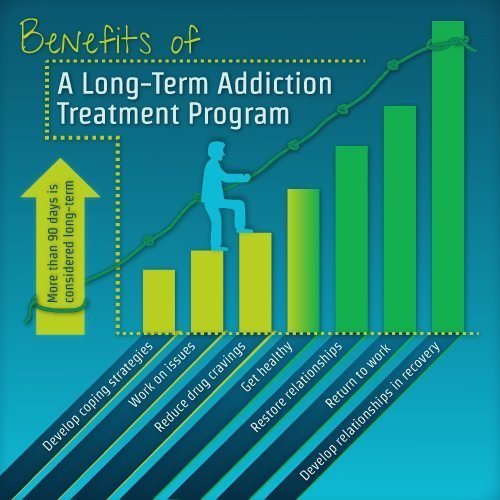The 6-Minute Rule for Narconon Africa
The 6-Minute Rule for Narconon Africa
Blog Article
Getting My Narconon Africa To Work
Table of ContentsA Biased View of Narconon Africa4 Simple Techniques For Narconon Africa3 Simple Techniques For Narconon AfricaWhat Does Narconon Africa Mean?The Of Narconon AfricaNot known Details About Narconon Africa Narconon Africa Fundamentals Explained
In a collection of documents with Manudeep Bhuller and Katrine V. Lken, we get over these information difficulties and the nonrandomness of imprisonment, supplying brand-new insights right into just how incarceration affects relapse, employment, children, and criminal networks - Addiction rehabilitation. Figure 1 Our job research studies the effects of incarceration in Norway, a setup with two essential benefitsWe can better link this details to other relative, consisting of children and brother or sisters. We have information on co-offending that permits us to map out criminal networks for observed crimes. Second, we can leverage the arbitrary task of criminal situations to courts that vary in their propensities to send defendants to prison.
Some courts send out defendants to jail at a high price, while others are much more tolerant. We determine a judge's stringency as the typical imprisonment rate for all other cases a judge manages, after regulating for court and year fixed effects, which is the level of random job. This quasi-random task of judge stringency can be utilized as an instrument for incarceration, as it strongly predicts the court's choice in the present case, yet is uncorrelated with various other instance attributes both by design and empirically.
The Best Guide To Narconon Africa
Features of prisoners, consisting of demographics and criminal activity classifications, are generally comparable in Norway and other nations, consisting of the USA, with the exceptions that the US murder price is much higher, and race plays a larger function there as well. What stands out as various, particularly compared to the USA, is the jail system.
Number 2In Norway, the average time invested in jail is a little over six months, which is comparable to most various other Western European nations. This contrasts with average US prison time of practically three years, which remains in big part the reason the United States is an outlier in its imprisonment price compared to the rest of the world [Figure 1]
The 15-Second Trick For Narconon Africa
This provides a lot even more splitting up in between minor and hardened lawbreakers than exists in the United States. There is no overcrowding in Norwegian prisons and far better individual security, with each detainee being assigned to their own cell and a higher inmate-to-staff ratio than in the United States (https://www.openstreetmap.org/user/narcononza12). Jails in Norway also supply well-funded education and learning, drug therapy, mental health, and task training programs
Our study on the effects of imprisonment on the wrongdoer, utilizing the random job of courts as a tool, yields three key searchings for. Initially, jail time inhibits further criminal behavior. We find that incarceration lowers the likelihood that an individual will reoffend within 5 years by 27 percent factors and decreases the matching number of criminal costs per individual by 10 fees.
Not known Details About Narconon Africa
We find large decreases in reoffending probabilities and collective charged criminal click here to find out more activities even after offenders are launched from jail. Our 2nd result is that predisposition because of option on unobservable specific attributes, if disregarded, brings about the erroneous verdict that time invested in prison is criminogenic. If we merely contrast criminal defendants imprisoned versus those not imprisoned, we discover favorable organizations in between imprisonment and subsequent criminal activity.
This stands in comparison to our analysis based on the arbitrary project of courts, which discovers an opposite-signed outcome. Third, the decrease in criminal activity is driven by people who were not working prior to imprisonment. Among these individuals, jail time enhances participation in programs guided at enhancing employability and reducing regression, and this inevitably elevates employment and earnings while preventing criminal actions.

Imprisonment creates a 34 percentage point increase in engagement in task training programs for the formerly nonemployed, and within five years their employment rate increases by 40 percent points. At the exact same time, the chance of reoffending within 5 years is reduced by 46 portion points, and there is a decrease of 22 in the average number of criminal charges.
What Does Narconon Africa Do?

A plausible description for the difference is that Norway's jail system varies considerably, both in terms of prison-term size and prison problems, from the US prison system. While understanding the effects of imprisonment on the offender is a crucial very first step, capturing spillover effects is likewise crucial for assessing criminal justice policy and developing efficient jail systems.
9 Easy Facts About Narconon Africa Shown

Average least squares estimates expose that kids of incarcerated daddies are 1 percent factor more probable to be charged with a criminal activity, about a mean of 13 percent, and show no effect on institution qualities. Utilizing our court stringency instrument, we locate no statistical proof that a papa's imprisonment affects a child's very own crime or school qualities, but we are not able to eliminate modest-sized results.
The smart Trick of Narconon Africa That Nobody is Discussing
We define criminal teams based on network web links to previous criminal cases. Our analysis returns 3 main searchings for. First, when a criminal network member is jailed, their peers' chance of being charged with a future crime decreases by 51 portion points over the following four years. Having an older brother put behind bars reduces the likelihood his younger brother will be charged with a criminal activity by 32 percentage factors over the next 4 years.
Report this page